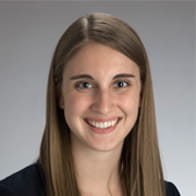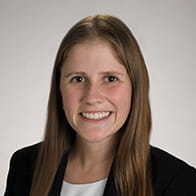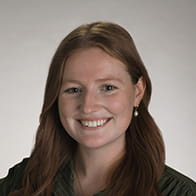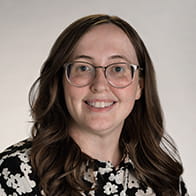- Home
- Professionals
- Residency Programs and Fellowships
- Pharmacy Residency
- Pharmacy Residency in Kansas City
- Health System Pharmacy Administration and Leadership Residency


Thank you for your interest in our 2-year combined PGY1/PGY2/MS health-system pharmacy administration and leadership residency program. Our program is designed to provide a strong clinical experience and equip graduates with the essential leadership skills necessary to assume high-level managerial, supervisory and leadership responsibilities throughout their career.
The health system pharmacy administration and leadership residency program at The University of Kansas Health System was established in 1969 by Harold N. Godwin. Since that time, we have graduated 150 HSPAL residents, some of whom have gone on to establish their own HSPAL residencies in health systems across the country.
The University of Kansas Health System HSPAL Program Specific Manual
PGY1 residency programs build upon a Doctor of Pharmacy (PharmD) education and outcomes to develop pharmacist practitioners with knowledge, skills and abilities as defined in the educational competency areas, goals and objectives. Residents who successfully complete PGY1 residency programs will be skilled in diverse patient care, practice management, leadership and education and be prepared to provide patient care, seek board certification in pharmacotherapy (i.e., BCPS), and pursue advanced education and training opportunities including postgraduate year 2 (PGY2) residencies.
PGY2 residency programs build upon a Doctor of Pharmacy (PharmD) education and PGY1 pharmacy residency training to develop pharmacist practitioners with knowledge, skills and abilities as defined in the educational competency areas, goals and objectives for advanced practice areas. Residents who successfully complete PGY2 residency programs are prepared for advanced patient care or other specialized positions and board certification in the advanced practice area, if available.
| Required learning experience | Duration |
| Orientation | 2 weeks |
| Training | 6 weeks |
| Acute care (selective) | 4-6 weeks |
| Specialty acute care (selective) | 4-6 weeks |
| Ambulatory care (selective) | 4-6 weeks |
| Medication use, safety, and policy (MUSP) | 4 weeks |
| Introduction to administration | 4 weeks |
| Longitudinal service commitment | Longitudinal + 1-3 nonconsecutive blocked weeks |
| Longitudinal research | Longitudinal + 3 nonconsecutive blocked weeks |
| Grand rounds and leadership topic discussion | Longitudinal |
| Transitions of care (HSPAL-specific) | 4-5 weeks |
| Advanced administration (HSPAL-specific) | 4-5 weeks |
| Expansion (HSPAL-specific) | 4-5 weeks |
PGY1 Selective options
| Required learning experience | Learning experience length* | Learning experiences options |
| Acute care management selective | 6 weeks |
Inpatient clinical services – 39th and Rainbow campus Inpatient operations – 39th and Rainbow campus |
| Ambulatory care management selective | 6 weeks |
Ambulatory clinical services Cancer care clinical services Ambulatory cancer care operations Home infusion services Infusion operations (oncology or nononcology) Retail pharmacy operations Specialty pharmacy operations |
| Pharmacy supply chain and centralized pharmacy services selective | 6 weeks |
Supply chain PLUS – choose one of the following subspecialties:
|
| Pharmacy senior leadership | 4 weeks | -- |
|
Longitudinal experiences
|
Throughout residency year |
Administrative longitudinal management budget Medication safety Master’s research |
|
Electives
|
6 weeks | Any available learning experience from this table or the one below, without repeating an experience already selected. |
*Any learning experiences scheduled during Thanksgiving and ASHP’s midyear clinical meeting will be lengthened by 1 week.
In addition to the above requirements, the resident must select a schedule that ensures the below requirements are met:
| Area | Learning experience |
|
Operations
|
Infusion operations (oncology or nononcology) Inpatient operations – 39th and Rainbow campus Retail operations |
|
Clinical management
|
Ambulatory clinical services Cancer care clinical services Inpatient clinical services – 39th and Rainbow campus |
|
Ambulatory services
|
Ambulatory cancer care operations Ambulatory clinical services Cancer care clinical services Home infusion services Infusion operations (oncology or nononcology) Retail operations Specialty pharmacy operations |
|
Potential electives
|
Community hospital services (Olathe or Liberty hospitals) Informatics Inpatient cancer care operations Investigational drug services Specialty hospital services (Strawberry Hill or Indian Creek hospitals) |
PGY1 residents follow the PGY1 program structure for presentations.
PGY2 year
PGY1 and PGY2 year
General presentation objectives
Residents will earn a Master of Science in pharmacy practice from the University of Kansas as part of the residency program. A minimum of 30 hours of coursework is required to be completed during the 2-year residency. Classes are taught through the Health Policy and Management Department, College of Business, College of Pharmacy and by administrators in the pharmacy department. The majority of classes take place during the evenings to avoid interference with clinical learning experiences. Graduate student tuition is paid for by The University of Kansas Health System. Residents who drop classes after the drop/add period in which no refund is awarded by The University of Kansas may be required to reimburse the health system. Similarly, any tuition reimbursement refunded to a resident must be forwarded on to the health system.
Residents are required to complete research projects throughout the 2 residency years. Residents will have 3-4 weeks dedicated to research each year as well as Academic Fridays to ensure dedicated time to work on research projects.
Academic Fridays
Reversed research model: PGY1 residents participate in leading 2 research projects throughout the year. Through the reversed model, PGY1 residents complete data collection/analysis and develop a poster and manuscript in the first 6 months of the program for a research project that was developed by a previous PGY1 resident. Starting in January of the residency year, PGY1 residents will develop a research question and design a research project by the end of the residency year that will be passed to the incoming PGY1 class.
During the program, residents are required to complete a longitudinal project that suffices the master’s project requirement of their coursework. This project must be in alignment with the strategic goals for the department and organization and allow the resident to contribute to an area of pharmacy practice. The resident will be required to prepare a manuscript with intent to submit to a peer-reviewed journal.
24 months
6 (3 PGY1, 3 PGY2)
PGY1:
PGY2:
Current benefits
Conference attendance and travel is supported by the department based on availability of funds.
Important dates after completion of match process
National matching services (NMS) code: 180718



Hometown: Saint Charles, Missouri
Pharmacy school: Purdue University
Practice interests: Clinical pharmacy management, operations, ambulatory care management
Hobbies: Cooking/baking, hanging out with friends and family, trying new restaurants, anything outdoors and cheering on Purdue basketball
Why I chose The University of Kansas Health System: This program provides me with a strong clinical foundation along with the opportunity to complete a personalized master's program. The unique staffing model allows me to staff in both the inpatient and retail pharmacies to improve my clinical and operational knowledge. Additionally, every interaction I had with current residents and members of the pharmacy team showed me how much they genuinely enjoyed the program and their work environment. The welcoming, supportive and collaborative culture within the pharmacy department felt like the type of environment I wanted to be a part of as I continued to grow professionally.

Hometown: Olathe, Kansas
Pharmacy school: University of Kansas
Practice interests: Pediatrics, operations, regulatory compliance, sterile and nonsterile compounding.
Hobbies: Quilting, embroidery, baking, cooking and trying new restaurants in KC!
Why I chose The University of Kansas Health System: I chose The University of Kansas Health System for the long and rich history of the HSPAL program. The program covers a wide range of pharmacy leadership areas in addition to a robust clinical experience that I was looking for. Knowing the history of the HSPAL program and going to school in the Kansas City area allowed me to interact with leaders of the health system that further solidified my decision to pursue residency at the health system!

Hometown: Topeka, Kansas
Pharmacy school: University of Kansas
Practice interests: Operations and medication safety
Hobbies: I love reading, crocheting and watching reality television in my free time.
Why I chose The University of Kansas Health System: I had an incredible experience during an APPE rotation with the inpatient pharmacy leadership team that solidified my interest in completing the PGY1 and 2 HSPAL residency program here! Additionally, the health system’s long legacy of successful graduates from this program was inspiring to me, and I am excited to have such an expansive network of past residents who have completed the program!
We are an equal employment opportunity employer without regard to a person’s race, color, religion, sex (including pregnancy, gender identity and sexual orientation), national origin, ancestry, age (40 or older), disability, veteran status or genetic information.